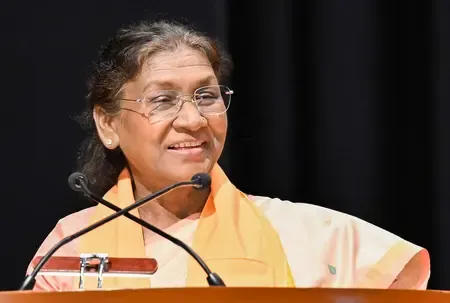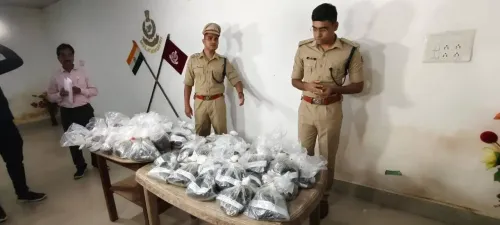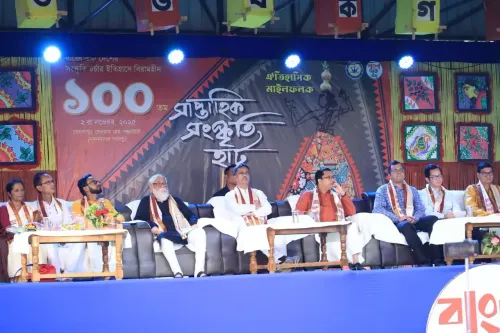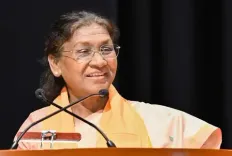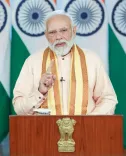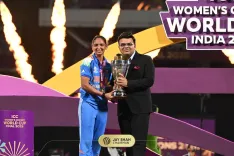Why Did Former Haryana Minister Sampat Singh Leave Congress?
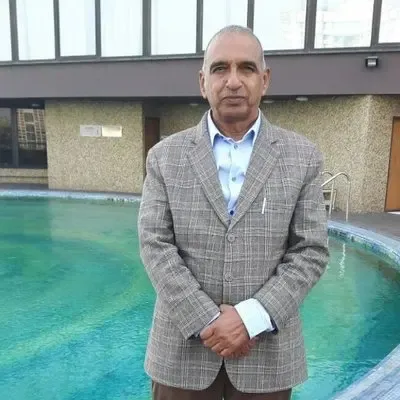
Synopsis
Key Takeaways
- Sampat Singh resigned from the Congress party, citing internal issues.
- The party is accused of favoring dynastic politics.
- Singh’s exit raises questions about Congress's leadership in Haryana.
- He emphasized the need for accountability and internal democracy.
- His resignation reflects a broader trend of discontent among leaders.
Chandigarh, Nov 2 (NationPress) In a sharp critique of the Congress leadership in Haryana, veteran politician and six-time MLA Sampat Singh has declared his exit from the Indian National Congress (INC). He accused the party of operating as a “private enterprise controlled by one family” and highlighted a “total breakdown of internal democracy and accountability.”
In a comprehensive letter directed to Congress President Mallikarjun Kharge, the former Haryana Cabinet Minister and past Leader of Opposition in the Haryana Assembly expressed his loss of “faith in the party’s capability to advocate for the people of Haryana.”
Sampat Singh confirmed that he has officially submitted his resignation to the party's central leadership, with copies sent to party MP Rahul Gandhi, senior leaders K.C. Venugopal, B.K. Hariprasad, and Haryana unit Congress chief Rao Narendra.
Reflecting on his extensive political career, Singh recounted his entry into Congress in 2009 after a lengthy public service, which included two terms as Cabinet Minister and one as Leader of Opposition.
Despite a strong electoral history—having been elected five times in a row from Fatehabad before transitioning to Nalwa at Congress's request—he claimed he was overlooked for ministerial or organizational roles post-2009 victory.
He noted that internal strife and factionalism within the party weakened both him and the party structure.
Singh pointed out that his closeness to Kumari Selja and the developmental initiatives for his constituency led to his marginalization within the party.
He observed that consecutive elections in Haryana demonstrated the toll Congress paid for neglecting loyal and capable leaders.
He cited examples where the state leadership had distanced prominent figures such as Kumari Selja, Kiran Choudhry, Shruti Choudhry, and Savitri Jindal, while favoring “dynastic politics and financial influence.”
Singh also criticized the 2020 Rajya Sabha selection process, where “the leader’s son” was preferred over deserving candidates from the Scheduled Castes and backward communities.
He listed numerous significant leaders who faced humiliation and were compelled to leave the party, many of whom later aligned with the BJP and ascended to prominent positions.
The former minister remarked that even Rahul Gandhi’s public acknowledgment following the 2024 Assembly defeat—that the state leadership prioritized personal interests over party welfare—was not followed by any corrective action.
“There has been no accountability for electoral failures or internal sabotage. Merit has been overshadowed by manipulation,” he stated.
Describing the 2024 Assembly outcomes as a “case study in self-destruction,” he emphasized that despite favorable pre-poll forecasts, Congress faltered due to arrogance and internal betrayal.
“The Dalit community, which previously supported Congress in the Lok Sabha elections, distanced itself after the alleged mistreatment of Kumari Selja.”
“I remain devoted to the people of Haryana, but I can no longer belong to a system that has lost its ethical and political direction,” Singh concluded in his letter, affirming that his resignation was “a painful yet necessary choice.”

